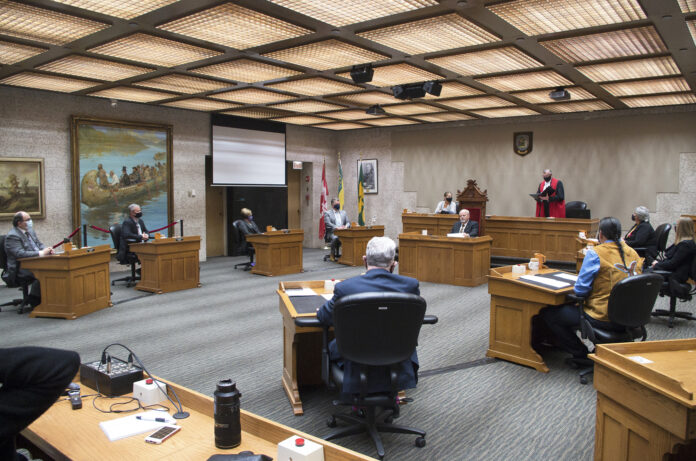Building a new cell at the Prince Albert landfill will cost double what city administrators originally expected, but city council says that won’t change their plans to build it.
Council approved the sanitation budget on Thursday, which includes a $6-million proposal to open a new cell. Administrators originally estimated the cost at $3-million, which was what they paid for a similar cell eight years ago.
Mayor Greg Dionne wasn’t pleased with the news, and told the Public Works Department that changing estimates were making it difficult to justify the spending to voters.
““Everyone’s asked me (about the landfill) over the last eight months, and I’ve warned them we’ve got to spend another $3-million on another cell, but that’s not true,” Dionne said during Monday’s meeting. “Now I hear we can’t cut it down. We’re still talking one cell, but now it’s $6-million. That’s why, as politicians, we get frustrated, and who pays the price? We do. Not (city staff). We pay the price, and we pay it at the polls.”
Dionne told staff to stop providing estimates about infrastructure costs without first discussing the project with a consultant. He said it’s not unusual for costs to go up if new regulations are introduced, but added that administration should get that information before estimating a cost. He said admin should ask council for funds to hire a consultant if necessary.
Despite his concerns, Dionne said during an interview afterwards there’s no doubt the project will go ahead as planned.
Capital Projects Manager Nykol Miller told council new landfill cells were incredibly complex, with specific requirements for drainage, piping and lining. She said they asked their consultant to look for ways to reduce the cost, but the only solution was to change the lining. That plan was not recommended, since it would reduce the cell’s lifespan by 10 years while only saving $750,000.
Miller said further cuts could compromise the cell’s leachate system, which could cause problems with the Ministry of Environment.
“It’s a complex cell design … and it’s a relatively new science,” she told council. “Our first one (was built) in 2002. Prior to that we were just dumping in the mound.
“The industry standards have increased, similar to how the building code and energy code has increase,” she added. “These standards have advanced, so the design for the cells is more complex.”
The City plans to take out a $6-million loan to pay for the project. Public Works Director Wes Hicks said they should be able to pay it off in 10 years, if not five, because the landfill consistently makes money.
“This is the only fund from day one that has always been in the black,” he said during the meeting.
Under the 10-year repayment plan, the City would pay $659,252 in interest every year.
Council may consider increasing fees for non-residential users to help speed up the payment process. Hicks said a rate review is part of the design process. He expects to have their recommendations ready for council by the end of the first quarter.
“The amount of money that we would bring in would substantially go up, which would make this loan disappear in 10 years, maybe five,” Hicks said.
Council also approved a 50 cent increase to the sanitation surcharge. This means residents will now pay $19.25/month in 2021, instead of $18.75. The move will net the City an extra $35,000. Administration say the money is needed to cover operating costs for waste collection, recycling programs, and future cell closures, among other items.
Ward 3 Coun. Tony Head made a motion that would have left the sanitation surcharge unchanged. The motion failed by an 8-1 margin.
Head told council $35,000 was a small number, and said council they make up the difference with cuts in other areas.
Councillors who opposed the move said there was a need for small increases over time to help keep up with costs. If not, council could find themselves in financial trouble years down the road.
“I really think that we don’t want to put ourselves in a bad spot,” Ward 2 Coun. Terra Lennox-Zepp said. “There’s a reason administration is recommending small increases like this: it’s reasonable.”
As with the utility budget on Wednesday, council cut a number of fleet expenses from the sanitation budget. The biggest was a hook-lift truck, which saved $250,000, along with an agriculture style tractor and disc, which saved $175,000. Funds for both pieces of equipment were coming out of the reserve budget.
The land and airport budgets were also finalized on Thursday, but the official vote won’t take place until Feb. 1.


